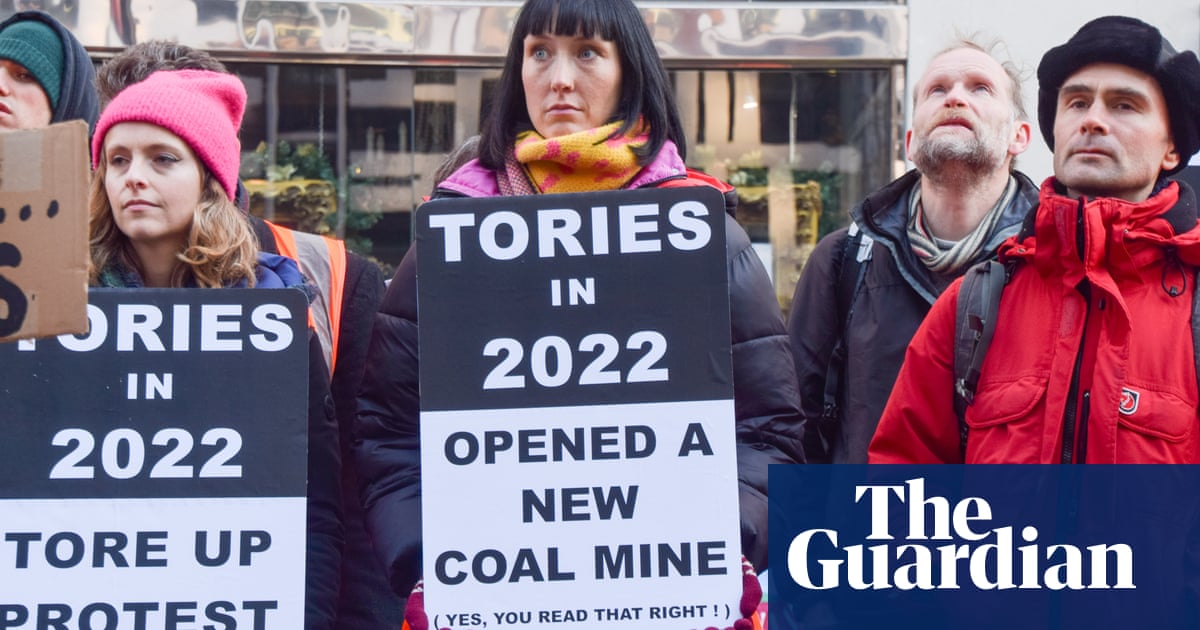
The UK government is spending many times more on measures that will increase greenhouse gas emissions than on policies to tackle the climate crisis, according to an analysis of the spring budget.
Only £145m in the March 2021 budget was devoted to environmental spending, most of it on the post-Brexit emissions trading scheme for industry, according to an analysis by the conservation charity WWF. But the cost of tax breaks to companies to encourage investment came to more than £34bn, while maintaining the fuel duty freeze – for an 11th consecutive year – is costing about £4.5bn in lost revenues.
Tensions over the government’s commitment to net zero emissions, and the potential cost of policies to meet the target, are said to be one of the chief bones of contention between the prime minister and the chancellor, Rishi Sunak. The two are said to have had at least one blazing row recently.
In all, WWF found that measures in the 2021 budget that would increase emissions were worth about £40bn. The findings come from a new “budget tagging tool” developed by the charity with help from Vivid Economics, which measures the impact of policy decisions that affect the environment.
Isabella O’Dowd, the head of climate at WWF, said: “The spring budget showed a disconnect between the government’s rhetoric and the reality of what it’s doing. The ambition [on emissions-cutting targets] is great, but now we really need to see the policies that will deliver.”
She said the landmark report from the Intergovernmental Panel on Climate Change, published on Monday, which found the world was heading for more than 1.5C of global heating within the next two decades, showed how urgent it was for ministers to act.
The UK will host vital UN climate talks, called Cop26, this November in Glasgow, aimed at bringing all countries together with new national commitments to cut emissions in line with the ambition of the Paris agreement of holding temperature rises to 1.5C above pre-industrial levels, beyond which the impacts of climate breakdown are likely to become more devastating.
“With nature in freefall and the climate in crisis, the clock is ticking for the planet,” said O’Dowd. “It’s not yet too late to prevent global warming rising above 1.5C – that is in our hands. But the UK government must play its part by keeping every climate promise it has made.”
She said separate estimates showed the UK could benefit to the tune of about £90bn in the form of new jobs, health benefits and infrastructure if the government took a greener approach to investment and spending.
A spokesperson for the Treasury said the government rejected the WWF analysis. “These misleading claims fail to recognise the £12bn we already pledged to spend in support of our 10-point plan for a green industrial revolution. The budget built on that with further funding allocations and ambitious plans on green finance, and the UK Infrastructure Bank, which will help finance green projects across the UK.”
In the budget, Sunak announced a new measure that would allow companies to claim their spending on certain productivity investments, plus an extra 30%, against any tax they owed. This “super-deduction” was spoken of at the time as a measure that could help to spur green investment. However, there is no guarantee that any of the investment covered by it will be green, and critics have pointed out that companies investing in new fossil fuel development could claim the tax break.
WWF urged the government to put in place a “net zero test” so that all policies would have to be proven to contribute to the net zero emissions target, or at least be compatible with it, in order to be adopted.












